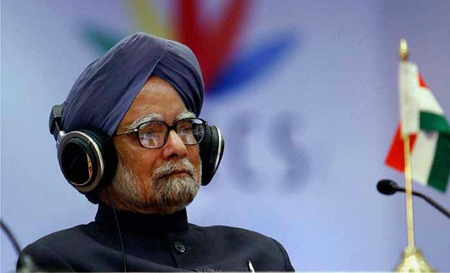 St Petersburg, Sep 6: Prime Minister Manmohan Singh has said that whatever action is required in Syria should be under the UN framework, amid growing pressure on US President Barack Obama from his Russian counterpart and other world leaders not to attack the Arab country.
St Petersburg, Sep 6: Prime Minister Manmohan Singh has said that whatever action is required in Syria should be under the UN framework, amid growing pressure on US President Barack Obama from his Russian counterpart and other world leaders not to attack the Arab country.
The Syrian issue dominated a long dinner meeting of G20 leaders including Obama last night hosted by Russian President Vladimir Putin at the end of the first day's deliberations during which Singh made an intervention.
Planning Commission Deputy Chairperson Montek Singh Ahluwalia said that it was also the prime minister's view that the world community should wait for the report of the UN inspectors on the alleged use of chemical weapons in Syria.
The prime minister also told his fellow G20 leaders that India condemns the use of chemical weapons whether in Syria or anywhere in the world, Ahluwalia, who was present at the dinner meeting, told reporters here.
Singh also told the leaders that one needs to be certain what has happened in Syria even if there is some probability of use of chemical weapons.
Syrian opposition and the West have accused President Bashar Al-Assad's forces of using chemical weapons on August 21 in a Damascus suburb, a charge denied by the government.
Ahluwalia said the indication given by the prime minister was that one should wait for the report of the UN team of inspectors.
The prime minister made it clear that whatever action is required in Syria should be under the auspices of the UN and not outside its framework.
According to Ahluwalia, who is the 'Sherpa' for India at the summit, the prime minister also said that India was not in favour of armed action aimed at any regime change as this would be violation of international law.
The meeting was also told that the UN Security Council should authorise the action if it is necessary.





Comments
Add new comment